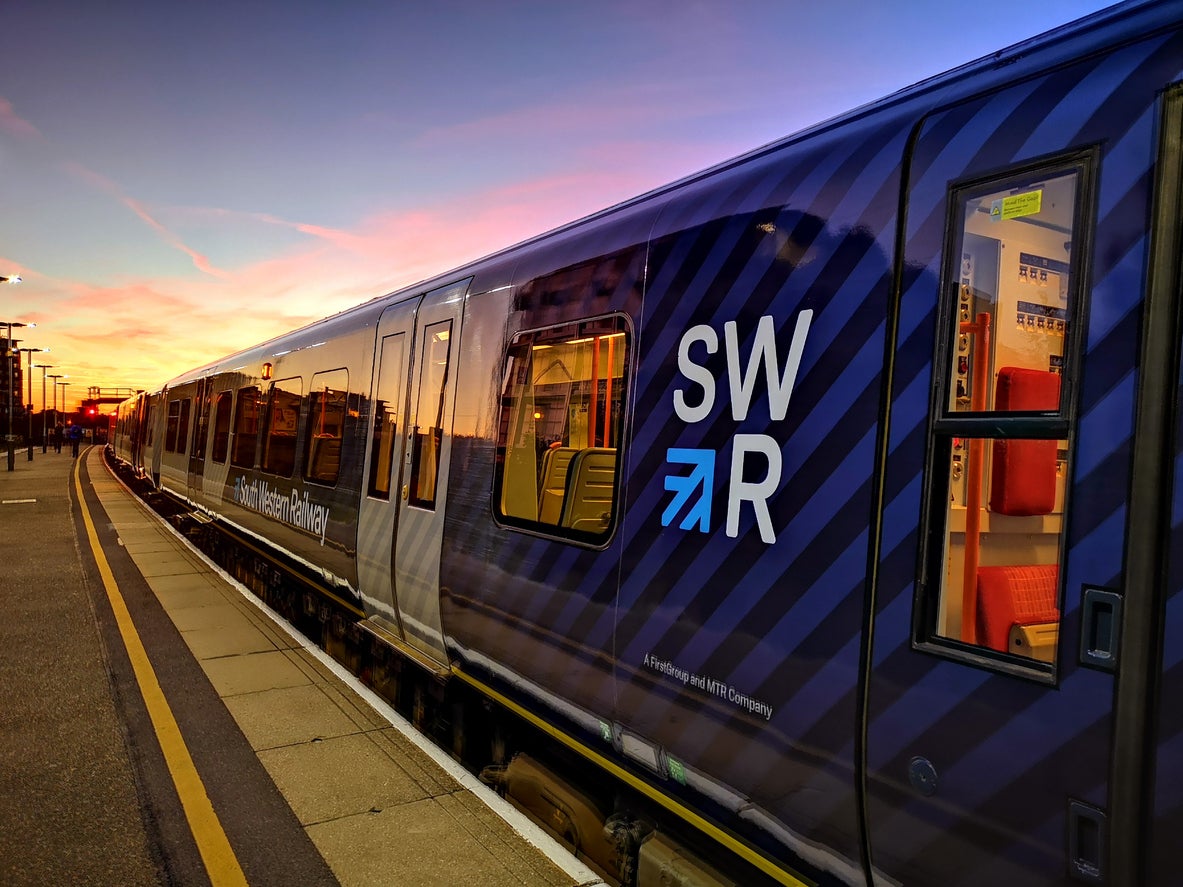Passenger trains could be blocked by freight trains during strikes
It’s ‘important that we try and prioritise rail freight wherever we can’ says Department for Transport minister

Passenger trains could be blocked from stations by parked freight trains during this summer’s proposed rail strikes, an industry leader has warned.
The chief executive of GB Railfreight, John Smith, told the PA news agency that the cargo trains could be prioritised in the event of a skeleton train timetable caused by industrial action this summer.
Freight operators are holding discussions with Network Rail about the impact from strikes by its signallers.
Union leaders will decide next week when to call strikes after members of the Rail, Maritime and Transport (RMT) union and 13 train operators overwhelmingly backed industrial action in a ballot.
Up to 80 per cent of rail services could be cut during the action, with trains running for just part of the day or restricted to main lines only.
Mr Smith, who chairs the freight board at the Rail Delivery Group, said: “If we’re only running for 12 hours (a day), we’re going to need to park freight trains in railway stations until the next 12-hour period arises and we can start moving again.
“We have trains that (currently) run around the clock.
“One of the key problems we have with a 12-hour timetable is our trains frequently only do one rotation a day around the 24-hour clock, to load them, to get to where they’re going, to unload them and to bring them back.
“If the railway is only open (for) 12 hours then they’re only halfway there or they’re stuck in the middle of nowhere.”
The union will have to give two weeks’ notice of strikes, which could start in mid-June.
On Tuesday, Department of Transport minister Baroness Vere said it was “very important that we try and prioritise rail freight wherever we can because it’s very important to supply chains”.
Mr Smith added: “The prioritisation of rail freight within a strike would be very much about saying ‘You can’t run your passenger train, we’re going to have to park in that station platform’.
“That remains to be seen. We’re in debate with Network Rail around what a timetable looks like and how that might work.”
Last week Manuel Cortes, general secretary of the TSSA union, warned of “a summer of discontent” across Britain unless pay rises for rail employees match inflation.
The government and rail firms criticised the industrial action, calling it “hugely disappointing and premature”, and warning that strikes could affect the rail industry’s recovery from the damage caused by the Covid-19 pandemic.
London tube strikes have also been proposed for early June, with some due to take place across the busy Jubilee weekend.
Additional reporting by agencies.
Join our commenting forum
Join thought-provoking conversations, follow other Independent readers and see their replies
Comments